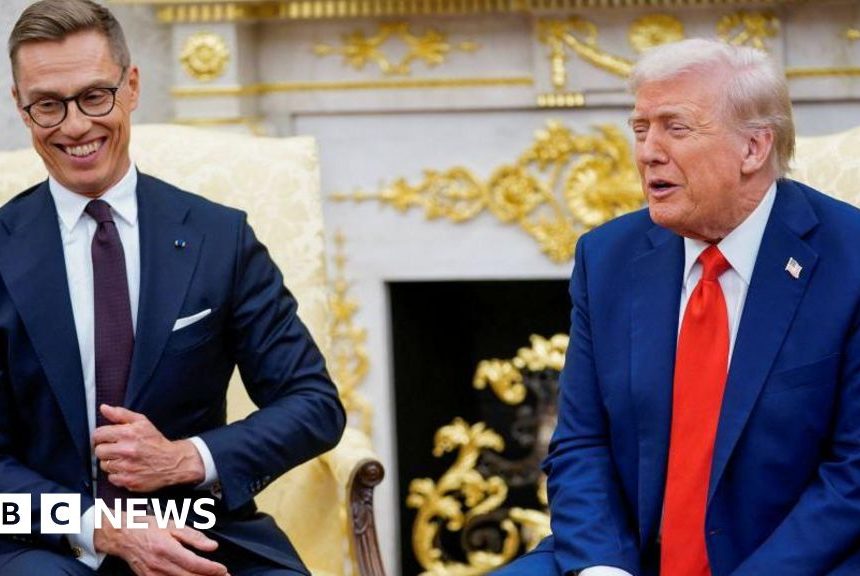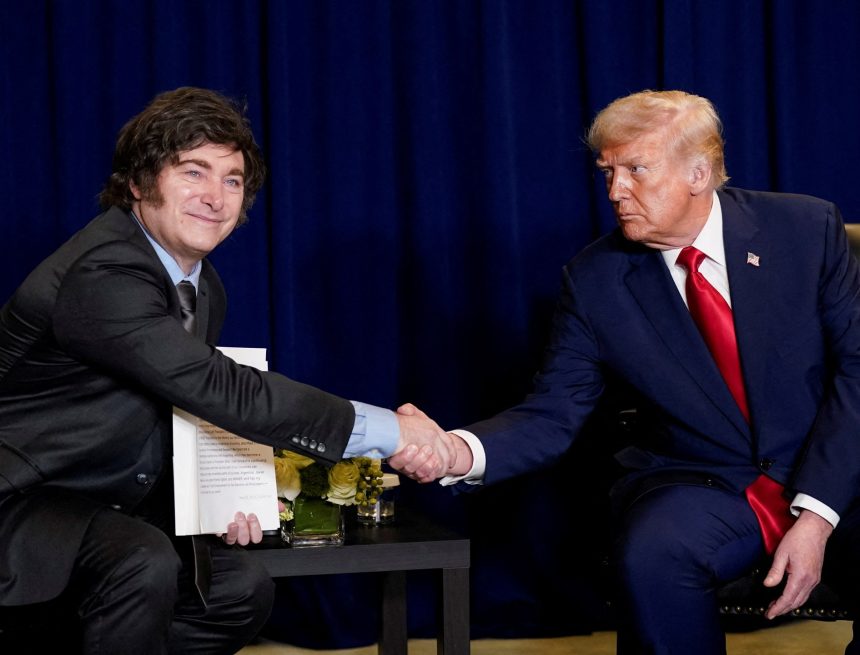It wasn’t quite the calamity of February, when Volodymyr Zelenskyy was publicly humiliated in the Oval Office by Donald Trump and his vice-president, JD Vance. But the Ukrainian president’s latest visit to the White House on Friday was, by all accounts, a disquieting experience. Mr Trump’s public musings before the meeting suggested that his stance had hardened towards Vladimir Putin, to the strategically significant extent of being willing to sell long-range Tomahawk missiles to Kyiv. But by the time Mr Zelenskyy arrived in Washington, the US president had changed his mind, instead lecturing his guest on the need to make territorial concessions to Russia.
So far, so familiar. Since being re-elected, Mr Trump has repeatedly resiled from following up tough talk on Russia with meaningful action. Faux deadlines for Mr Putin to make substantive steps towards peace have come and gone, treated with indifference by the Kremlin. Last week, the US secretary of war, Pete Hegseth, stated that Washington was ready to “impose costs” if Russia continued the conflict. But a two-hour phone call at Mr Putin’s request was enough to defuse that threat, and for Mr Trump to once again position himself as a neutral arbitrator between two warring parties.
The return of that insidious and amoral framing signifies a moment of diplomatic peril for Mr Zelenskyy. In language that is more suitable for describing a contested real-estate deal than an illegal invasion costing hundreds of thousands of lives, Mr Trump told Fox News that Mr Putin was “going to take something … he’s won certain property”. Should a planned meeting in Budapest take place between the US and Russian presidents – to be hosted by Hungary’s Putin-friendly leader, Viktor Orbán – discussion of a potential carve-up will dominate the agenda, as it did in the failed Alaska head-to-head.
That prospect should concentrate minds ahead of a EU leaders’ summit later this week in Brussels. In the wake of the signing of the Gaza peace agreement – in relation to which Mr Putin was careful to offer fulsome congratulations – Mr Trump has taken to describing himself as “the mediator president”. In grimly paradoxical fashion, there is every possibility that he will try to bully Mr Zelenskyy into an unacceptable deal that rewards Russia’s aggression, in order to burnish his supposed credentials as a supreme peacemaker.
It is critical that Europe provides Ukraine with the resources and staying power which allow it to resist such pressure. Progress is reportedly being made on proposals backed by the German chancellor, Friedrich Merz, which would use frozen Russian assets to secure an interest-free £122bn loan to Kyiv. Such money, however it is sourced, will be fundamental to supporting Ukraine’s defence effort into next year. At a more symbolic level, there are also signs of a new determination to find ways to circumvent Mr Orbán’s opposition to advancing Ukraine’s bid for EU membership.
As Mr Trump pursues his mercurial path, guided only by vanity, mercantilism and admiration for the exercise of brute force, EU leaders will need to be creative and determined in ensuring that Ukraine’s interests are adequately defended in the weeks and months to come. Mr Putin is playing the US president again, exploiting the absence of a moral compass in Washington. More than ever, a robust counterweight is required on the other side of the Atlantic.


